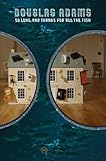Let’s explore some cool bacteria science fair projects for kids. Bacteria are tiny, microscopic organisms that are made up of hundreds of thousands of species. They come in various shapes and sizes that spread throughout many agents such as land, water, the atmosphere even animal and human bodies. One may think that all bacteria are bad ... and some are. You may be surprised to learn that many are good for you.
Bacteria multiply at a rapid pace, amounting to colossal amounts in any given second. Pretty impressive huh? But that’s not all. Believe it or not... they grow whether their dead or alive, depending on the adaptability, living conditions and aiding agents.
The most important role of bacteria is to act as a natural ingredient for decomposition of waste and other microorganisms. They travel on variety of different agents such as air and water to assist in their rapid growth but some bacteria do not need agents to multiply. There are bacteria that can grow without agents. They are made up of permanent or temporary cilia. Cilia are hair-like organisms that aid in the movement of the bacteria.
This formation almost gives bacteria a human-like structure. But since bacteria do not have a nucleus they are not classified as such. Their DNA, instead of orderly stranded connection, floats inside the bacteria cell which gives them a blob like appearance.
Living organisms have five classifying categories of bacteria: Animala (animal), Plantae (plants), Monera (blue-green algae), Protista (Protozans) and fungi.
To explore the differences amongst the bacteria that live on our planet, I have listed a ideas to you started. Perhaps these will encourage you to create your own bacteria science fair project. Remember, bacteria are around us everywhere we turn. Take a swab and discovery what types of bacteria are in your space.
Types of exciting bacteria science fair projects include:
- Does a public restroom contain more bacteria than a bathroom in your house?
- Which has more bacteria, your dog/cat's mouth or a human mouth?
- Does the process of reusing a water bottle contain a significant amount of bacteria?
- What effects the growth of bacteria in clean or dirty environments?
- How much bacteria does a hand sanitizer really eliminate when used?
Choose a science fair project that you are interested in, one that will be fun for you to do and will keep your interest for at lease a month. If it the project for you then you will get more excited about it as time goes on.
Explore the SuperScienceFairProjects.com website for a lot of free abstracts and ideas as well as more microbiology science fair projects.

























































No comments:
Post a Comment
Please leave us some love...and have yourself a groovy day~!! Peaces...xoxo